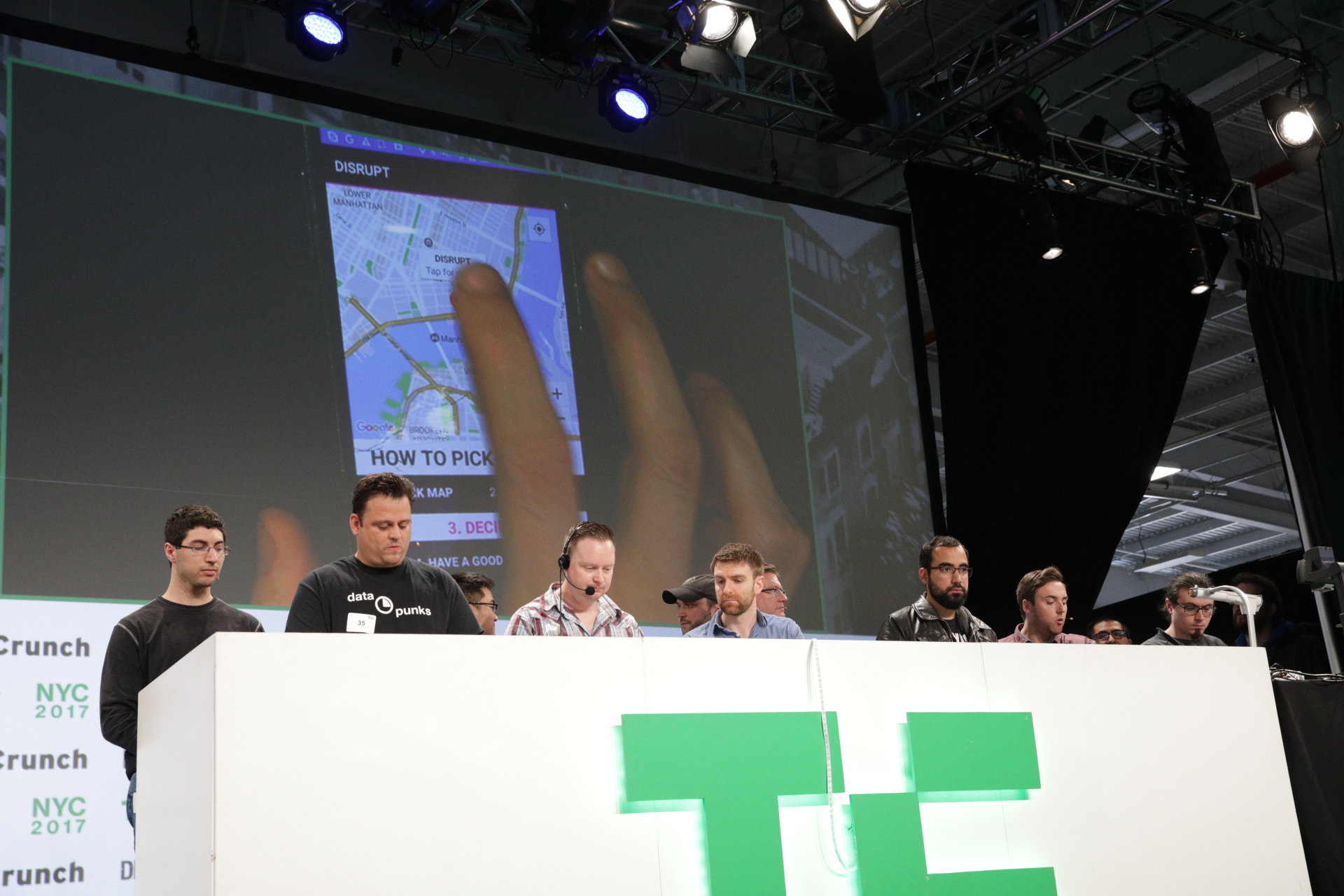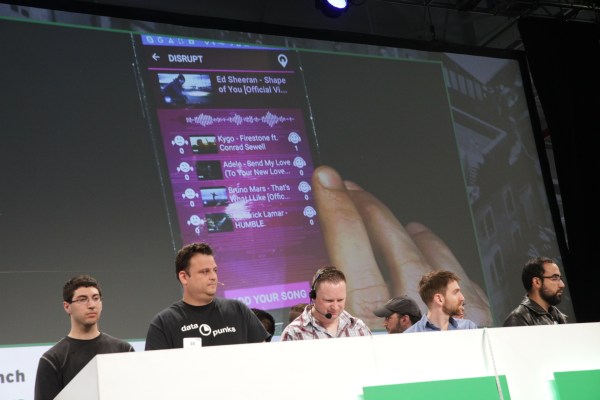WEDJ (that’s “We DJ,” not “Wedge,” for the record) is a collaborative music-playlist-building app that sprung out of this weekend’s all-night Hackathon at Disrupt NY. Built by a team of four part-time hackers, the app is something of a real-world version of the dearly departed Turntable.FM (itself a virtual version of a real-world experience, thus continuing the great technology ouroboros) designed for use in bars, clubs, offices and other social experiences.
Using geolocation, the app allows users within a certain radius (determined by the venue) to participate. Users can also find participating locations through a Google Map. Once connected, they search for songs pulled from YouTube and SoundCloud and add them to the playlist. Other users can up- or down-vote the selection, though final curation ultimately falls on the admin/owner of the venue, to help weed out questionable selections.
The selections feed into a single playlist, with order determined by votes. “It really gives the crowd the ability to be involved in the whole DJing process,” says Travis DeSilva, one of three of the team members who work together at a luxury trade wholesaler during the day. The system is similar to what you’ll find on an internet jukebox, though it helps democratize the process a bit by offsetting song choice onto mobile devices.
Of course, doing so means that bar patrons aren’t pumping money directly into jukeboxes, so the team’s looking into ways to monetize the process at it continues development beyond this weekend’s hackathon. One of the potential revenue streams is again similar to connected jukeboxes, letting users pay an extra fee to push their choice up to the top of the queue. The app’s developers also hope to strike deals with venues to pull in some revenue from club admission fees.
The team acknowledges that, as it attempts to make the next step from hackathon project to real-world product, there will be a number of issues to contend with, like royalty issues, which will likely mean YouTube and SoundCloud likely won’t cut it as music sources. But it’s certainly easy to see how such a social music offering could prove popular with bars, clubs and offices that are already relying on smartphones to do the heavy lifting for their playlist needs.

